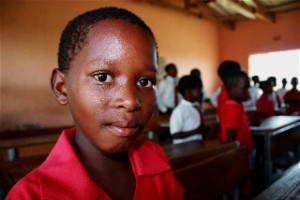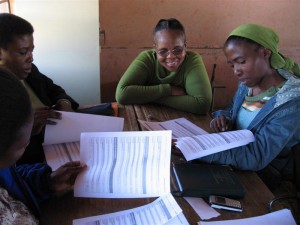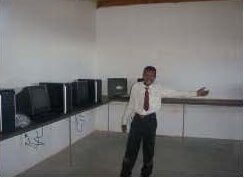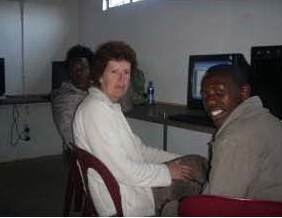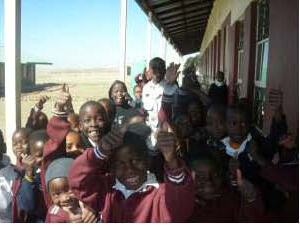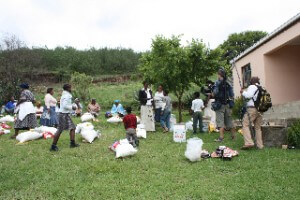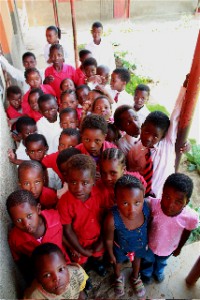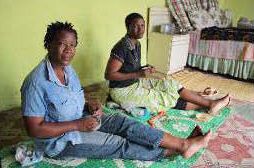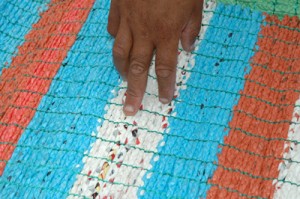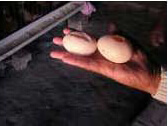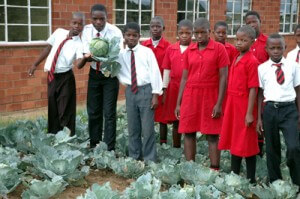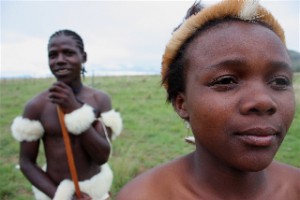EDUCATION:
EDUPEG: 7 Schools within the programme at present but the project is not really achieving the required results. It appears that most schools are only using the materials when the Edu-peg educators visit the village and are not really integrating this into their daily teaching plans. This is very frustrating as it is a question of relying on the teachers themselves to drive the project.
Complaints were received from Edu-peg that the Wild ward assistants were not available to assist with translation when workshops were held and that Elizabeth can not split herself between classes. They also wanted someone from Wild present in case they were not comfortable being left in the classes on their own. This was addressed but the level of English and capacity in general among the 2 ward assistants is such that they can not really fulfil the need even though they attended the initial training.
Some schools like Isandlwana Primary do very well with the programme and others do not use it at all. In some schools the staff turnover is so high, (due to HIV related illness in many cases) that the new teachers are not trained to use the programme and therefore it is stored away. In one case the booklets and kits were locked in the safe so that it would not get damaged rather than allowing the children to use the programme.
Instead of doing the usual “follow-up” visits, it has been suggested to Edu-peg that we start the new year with a fresh Introduction Workshop.
ECOSCHOOLS: Eco schools continue to be a popular introduction but yet again some schools driving the project internally and others expecting Elizabeth to do it all for them. Again we have a situation where the ward assistants are not of any support value to Elizabeth.
The general consensus has been to work with those schools that show interest and commitment and wait for those who don’t to take an interest and show commitment rather than chasing after them all the time.
Isandlwana Primary has been one of the leaders, having received a silver certificate for their efforts.
Food gardening projects are very popular and Isandlwana Primary is growing both vegetables and fruit trees with great dedication.
We were approached by the High School for the first time asking if they may join in the programme as they would also like to start a food garden. This was approved and we have authorised the purchase of gardening equipment for the school.
COMPUTER ROOM: Generous donations from various lodge guests saw first a number of computers donated to Isandlwana Primary. This resulted in us requiring a dedicated teaching space and we then embarked on raising awareness amongst guests for the renovation of an empty classroom into a computer room.
The floor was screeded as the cement had cracked and crumbled and was very dusty. The windows were bricked up and smaller windows were fitted from a security perspective. Counter tops were fitted all the way round for computer stations. Local labour was used but not without incident and caused a lot of political tension which we can now look back on and laugh.
The next batch of donations are due to be applied to the installation of ceilings. Unfortunately we presently only have enough funding for some of the materials and there is a lot of pressure from the school to get the ceilings in – we have agreed that they need to meet us half-way and the project is due to continue in January 2010 once the schools have re-opened.
TEACHING VOLUNTEERS: We had our first teaching volunteer from the UK – Marilyn Kent. Marilyn is actually an adult education trainer and ended up teaching the teachers at Isandlwana Primary how to use and teach computer skills to the learners. It was received very well with the school constantly asking us when they can have some more. The lodge kindly assisted us with accommodation in the AMAFA house.
TONY & HEV GATES BURSARY SCHEME: Lodge guests Tony and Hev Gates have initiated a R30 bursary scheme for a senior learner to receive tertiary education. Interviews are due to be conducted and it is anticipated that the funding will be available in October 2010 so that the learner may attend a tertiary institution in 2011. Inkosi Mazibuko is very supportive of the project and will drive the introduction with WILD in the high school and amongst past matriculants.
There has been a bit of a disagreement with the lodge in terms of the application process as the lodge had identified a student who is the son of one of their employees and communicated to the guest that this should be the recipient. Sam and Elizabeth disagreed as they felt their should be equal opportunity to all applicants and that we could not fault the Inkosi this time as he had agreed to an interview and selection process and now the Lodge wanted to put forward a sole candidate. Issue was resolved with Pat. Introduction of the project to be done in February when the Inkosi’s calendar is free and final interviews / approval of candidate to be done in June/July so as to give the recipient a chance to also save some of their own money. The June exam marks will be taken as a deciding mark from those students who will be doing grade 12 in 2010.
EDUCATION FORUM: Buy-in has also been received from two school principals and the Inkosi to start an Village Education Forum to try and deal with the disparities within the educational support programme. The feeling from these community leaders is very much that certain schools are holding others back and then complain if those that work receive the benefits. They have suggested that those that do not co-operate be “left behind” and can rejoin the forum once they are willing to commit.
SCHOOL CLOTHES: Second hand school clothes have been pledged by the parents and children from Cowan House Preparatory in Hilton to one of the village schools who also use a maroon uniform. During the course of the year in excess of 20 boxes of uniform, including winter uniform, sports kit and other clothing has been received which has been welcomed by this very poor school.
The project will be on-going.
SECONDARY HIGH SCHOOL: We have recently been approached by the High School for us to please assist them and get involved with their pupils. In addition to the food garden as mentioned under Eco Schools, they have also asked that our sewing group become involved in training the young girls and have suggested that they would make a classroom available to them for this purpose. Further “negotiations” as to the use of the classroom and training will be undertaken once the school has re-opened in 2010 and the principal has also indicated his commitment to the education forum.
WATER TO SCHOOLS: An American donor was referred by the Lodge to the project. She initiated the project and, contrary to our normal operating style, created huge expectations. The equipment/materials to implement were purchased and the connection fees paid to the water board. Politics set in. We now have a stale mate between the water board and the department of education in terms of the schools not having the authority to accept responsibility for the monthly accounts. We have now involved the municipality and are trying to resolve the matter despite all the red tape and are hopeful that the installation will be implemented early in the new year. Once again the lesson of good will but lack of experience creating issues — donor driven projects seldom work as hoped. We will set it right, it will just take a while.
HEALTH AND WELFARE:
FOOD PARCELS: The food parcel project that was sponsored by a lodge guest who hosted a ball in support of HIV orphans was a huge success, albeit not a sustainable way of providing much needed resources. Almost 100 orphans benefitted from the project. Items included staple foods as well as “LUXURY” items such as soap and toothpaste. It would be great if we could find an annual sponsor or launch and annual fundraiser for this programme.
It has also been included in the lodge guest donation programme – information is given to guests should they wish to participate in the community development programme for the village.
SWINE FLU: Elizabeth and the ward assistants attended a course given by the Department of Health on Swine Flu which was really useful. They then went on to share the information they received with the village, especially the elderly and those who care for HIV orphans.
ORPHAN CARE: The lodge continues to drive the “adoption” of children from the village for school clothes and school fees. We believe that this may be grown into an “adopt an HIV orphan” programme in a subtle way with Elizabeth identifying the most needy orphaned individuals as recipients.
As all the schools are not supposed to be non-fee paying schools, we are also looking at rather putting a portion of fees towards daily living expenses in the form of perhaps the food parcels in addition to the sponsorship of a school uniform.
SMALL BUSINESSES AND AGRICULTURAL ACTIVITIES:
BEADING: Beading continues at its own pace. It has developed considerably since it started, but now seems to have reached a plateau. The beading ladies seem unable to deliver consistent quantity or quality, despite us having secured orders for them and providing them with sample product. We will continue to support this programme but we have agreed not to put any more funding into the programme as we believe a bit of a” hand-out culture” has developed here. This is especially of concern as one of our ward assistants is a key member of the beading group. Concerns were also raised that she receives a stipend from WILD to drive this project amongst others and then still derives benefit from the profits of the project – this was defended by the fact that the project is currently not really in a profit making position. It has highlighted the fact that one has to be very aware of outside perceptions of who and what WILD supports and why. The lodge has agreed to the purchase of American and UK flags but the order was not forth coming. Sam has also secured orders from the new Multi Media Centre near uMgungundlovu so hopefully the girls will start producing in the new year. They continue to attend exhibitions organised by the Department of Arts and Culture but we have found that they enjoy these as they can sell and exhibit anything and are not bound by large quantities of the same product but rather display single item pieces. Unfortunately the quality of the work is not bespoke and therefore you can purchase the same item almost anywhere else at competitive prices.
SEWING: The sewing group has shown incredible initiative and commitment and has gone from strength to strength this year under Elizabeth’s enthusiastic guidance.
Products include a wide range from school uniforms which has become a self-sustainable income stream, to bags, skirts, curtains and quilted items. Sam secured an order for 20 quilts for the Premier’s multi media centre project near Ulundi as well as the manufacture of some curtains. As the women have been working on school benches, it was agreed to extend a loan to them for the purchase of a large sewing table for cutting of patterns. Never did they ask for a donation but only for a loan which shows the pride and commitment of this group. Many of these women are elderly and looking after the grand children who have been orphaned by HIV. (This is in stark contrast with the beading group who are mostly young women and in the HIV danger generation.)
It was agreed by the WILD team that should the opportunity for securing a donation to pay for the table or assist with subsidising the cost present itself, we would extend assistance based on them having such a fantastic attitude.
CHICKENS: The chicken project (boliers) have become self-sustainable and does not require any further financial support from WILD. Elizabeth still advises them from time to time in terms of business decisions but that is the extent of our involvement. The egg project has been discontinued for now, as the recipients refused to work together in teams and working alone could not give the laying hens the proper care and feed to consistently produce healthy eggs. It is a pity — lack of protein is still of concern in the diet of many of the villagers, especially the orphans. We will start again only if people work together.
VEGETABLE GARDENS: 11 gardens plus two emerging school gardens, one at Isandlwana Primary and one at the High School. All doing fine but have been impacted by the heavy rains that we received at the wrong time of year. Many gardens were waterlogged and crops have been mainly cabbage and potatoes. Isandlwana Primary is doing particularly well and have done their garden as part of their Eco-School project. Sam and Pat investigated the growing of herbs by the school for the lodge and this may well be a new project that can be initiated in the new year. Quality of produce will have to be exceptional but fortunately with herbs many of the diseases that would plague other vegetables may be overcome.
ORCHARD: The project is one of those that is “stop start stop start”. Successful workshops have been held with the Department of Agriculture but implementation is hampered by village politics, specifically the local Induna that in a round about way indicated that he expected payment for the Orchard project. Soccer uniforms were donated to the local boys and they do watch over the orchard, reporting visitors, but do not get involved in the actual gardening and weeding requirements. Again this is due to the lack of a local driver on the ground. “Ward politics” – -very local, subdivision of the tribe – is a powerful force and Elizabeth feels we do not have an effective team at that level in this ward. It was decided delay installation of the soccer goal posts until such as time as the orchard is working. At present it is the women who have taken responsibility for weeding etc (as always!) instead of the young boys on the soccer team, which was not the original agreement.
CULTURAL GROUPS:
The cultural group continues to perform well at the Lodge. Other cultural activities like the weaving of traditional baskets, carving of traditional fighting sticks etc do well and quality and quantities are sufficient in terms of the demand for such items. It would be preferable if the lodge could stock such items at lower mark-ups to try and incentivise guest to purchase more items and in so doing stimulate production. Other outlets are currently being sourced with AMAFA potentially stocking the Ilala (palm leaf) baskets.
GENERAL:
WORKING WITH THE LODGE: We believe that the relationship with the lodge has come a long way and is now more stable than ever. There is great buy in and a lot of effort is being made to get the guests involved. Our capacity to meet the Lodge’s needs in the long run, will have to be considered as the ward assistants can not replace Elizabeth when it comes to dealing with any guest relations.
STAFF MATTERS: Both Sam and Elizabeth had a bad start to the year.
Elizabeth was targeted by group of fraudsters who tried to tap into the lodge’s internet banking account using Elizabeth as a conduit. Elizabeth alerted Sam to the situation and together they managed to set a trap and have one of the suspects arrested. He later was let free by the police at Nqutu and all evidence “disappeared”. A detective indicated to Sam that they suspect involvement of the police at Nqutu.
Sam had an emergency operation to remove an ovary and was unable to drive for 8 weeks after the operation. During this time Elizabeth came to meet with her in Pietermaritzburg. She is due to undergo a full hysterectomy in 2010. Ill health has had an impact on her managing her consultancy work and to this extent she has given up all her other clients to focus in 2010 on getting better. She has undertaken a 1 year contract with CROW in Durban and has moved to Durban. She will however continue her work with WILD should they wish her to do so and is allowed by CROW to continue this.
Ward assistants roles need reviewing and perhaps we have got the stage where their roles as initially required have become obsolete. It may well be a better option to look at a succession strategy for Elizabeth and provide her with a intern that can speak English, has the capacity to become computer literate and obtain a driver’s licence in order for her to have better support.
